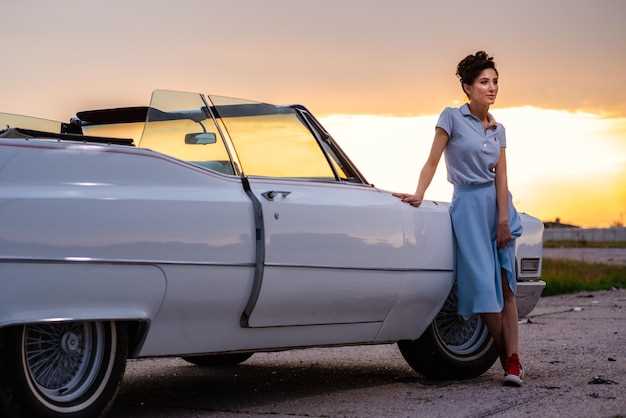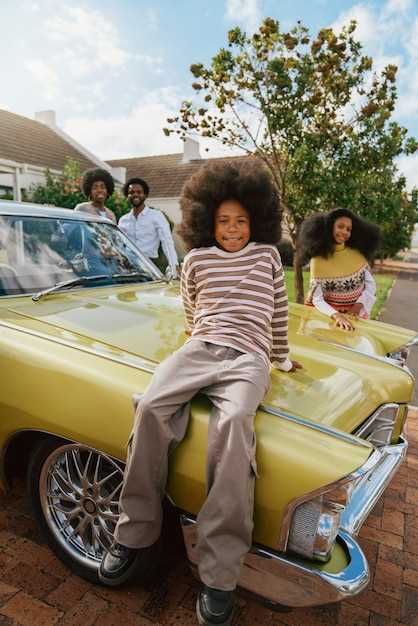How to insure your classic car properly

When it comes to owning a classic car, one of the most crucial aspects to consider is insurance. Unlike regular vehicles, classic cars often hold significant value, both financially and sentimentally. As a proud owner, ensuring that your investment is adequately protected requires a tailored approach to insurance coverage.
Classic car insurance differs substantially from standard auto insurance policies, as it addresses unique risks and recovery needs. These vehicles may appreciate in value over time, necessitating an understanding of how to secure appropriate coverage that reflects their worth. This comprehensive guide will explore the various policies available, factors impacting premiums, and essential tips for selecting the right insurer for your classic car.
In the following sections, we will delve into the specific requirements for insuring a classic car, the importance of agreed value policies, and special considerations for modifications or restorations. By the end of this guide, you’ll be equipped with the knowledge needed to ensure your classic vehicle is properly insured against potential risks.
Understanding the True Value of Your Classic Car for Insurance Purposes
Determining the true value of your classic car is crucial for securing appropriate insurance coverage. Unlike standard vehicles, classic cars often appreciate over time, making accurate valuation essential for both protection and potential claims. Valuation involves assessing the market demand, historical significance, condition, and unique features of your classic vehicle.
Firstly, consider the market demand for your specific make and model. Research recent sales data, attend classic car shows, and connect with local clubs to gauge interest. This information can provide insights into how much collectors are willing to pay and influence the valuation.
Next, the historical significance of your classic car should be evaluated. Vehicles that are rarer or have a unique story often fetch higher prices. Documentation, such as original sales receipts or restoration records, can enhance the car’s perceived value by showcasing its provenance.
The condition of the vehicle plays a vital role in its valuation. Cars that have been meticulously maintained or restored to original specifications maintain higher values. Hiring a certified appraiser can provide an objective analysis of the car’s condition and help in establishing a fair market value.
Finally, consider the varying insurance options available. Collector car insurance policies often allow for agreed value coverage, which ensures that you receive a predetermined sum in the event of a claim, reflective of the car’s true value. Regularly reassessing your vehicle’s valuation every few years can ensure that your insurance remains aligned with the market and protects your investment effectively.
Choosing the Right Classic Car Insurance Policy: Key Factors to Consider

When selecting a classic car insurance policy, it is essential to assess several key factors to ensure adequate protection for your valuable asset. One of the primary considerations is the valuation of your classic vehicle. Accurate valuation not only determines the premium you will pay but also impacts your settlement in the event of a claim. Professionals recommend getting an appraisal from a recognized expert, as it helps in establishing the true market value of your car.
The type of coverage you choose is another crucial aspect. Policies can range from agreed value coverage, where you and your insurer agree on a specific value at which the car is insured, to actual cash value policies, which take depreciation into account. Agreed value policies are typically preferred for classic cars, as they provide greater peace of mind by ensuring that you receive the amount you agreed upon in case of a loss.
Additionally, consider the mileage limits set by the insurer. Many classic car policies come with restrictions on how much you can drive your vehicle annually. If you plan to use your classic car for shows or leisure driving, it is critical to select a policy that offers sufficient mileage allowances.
Another influencing factor is the requirements for storage and maintenance. Insurers often have stipulations about how and where your classic car is kept. Proper storage in a garage or a climate-controlled environment may qualify you for discounts and better coverage options, as it reduces the risk of theft or damage.
Finally, look into the insurer’s reputation and experience in handling classic car claims. Choosing a company that specializes in classic vehicle insurance can provide additional peace of mind, as these insurers typically understand the unique needs of classic car owners. A thorough review of customer feedback and claims processes will help in identifying a reliable provider.
Maintaining Coverage for Your Classic Car: Tips for Long-Term Protection

Owning a classic car comes with the responsibility of ensuring it remains protected for years to come. Maintaining adequate insurance coverage is essential to safeguard your investment. Here are several tips to help you secure and sustain the proper insurance for your classic vehicle.
First, always keep an updated inventory of your classic car’s value. Regularly reassess its worth by considering factors like market trends, condition, and modifications. This information is crucial for adjusting your insurance policy and ensuring you’re covered for the full amount in case of a loss.
Next, consider specialty insurance providers that focus specifically on classic vehicles. These companies often offer tailored policies that take into account the unique aspects of classic car ownership, including limited usage and the potential for appreciation in value over time.
It’s also important to maintain documentation related to your car’s history, including appraisals, receipts for modifications, and maintenance records. This evidence can support your claim in case of theft or damage, providing clarity to the insurance adjuster and ensuring you receive full compensation.
Additionally, review your policy periodically to ensure it reflects any changes in your vehicle’s value or condition. Keep an open line of communication with your insurer, especially if you make any significant upgrades or changes to your car.
Finally, consider additional coverage options like comprehensive and agreed value coverage. Comprehensive insurance can protect against non-collision incidents such as theft, fire, or vandalism, while agreed value coverage secures a predetermined value for your classic car, eliminating disputes in case of a total loss.
By following these strategies, you can maintain robust insurance coverage for your classic car, providing peace of mind and long-term protection for your cherished investment.




